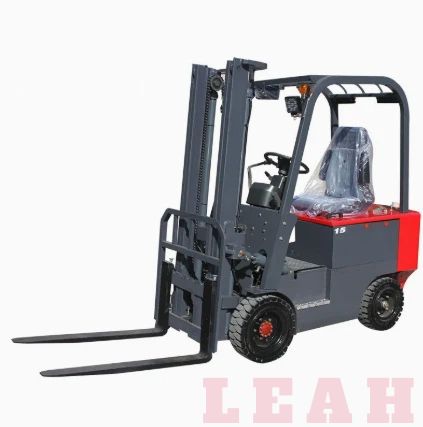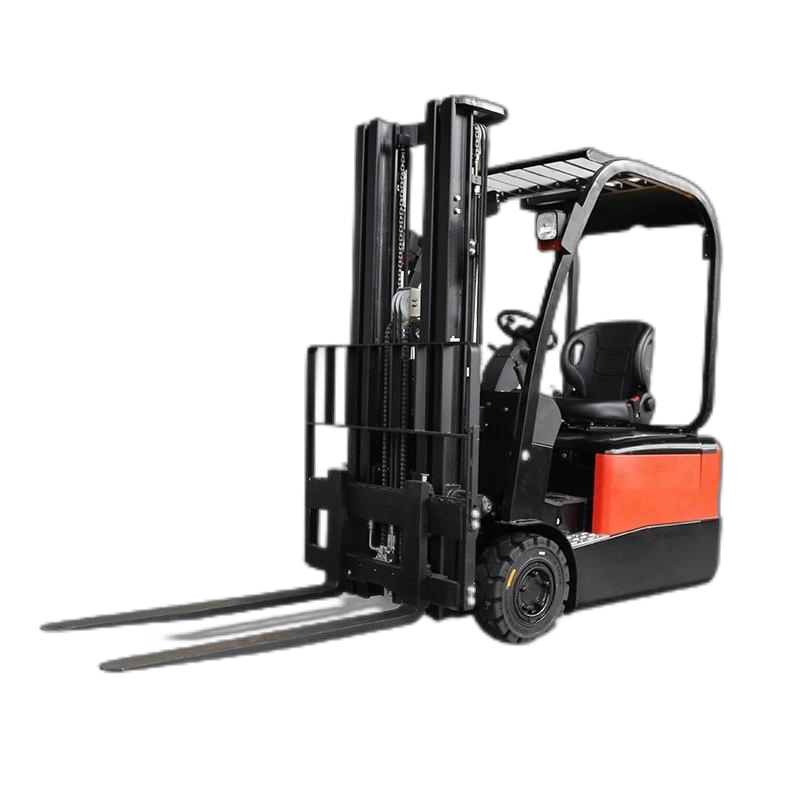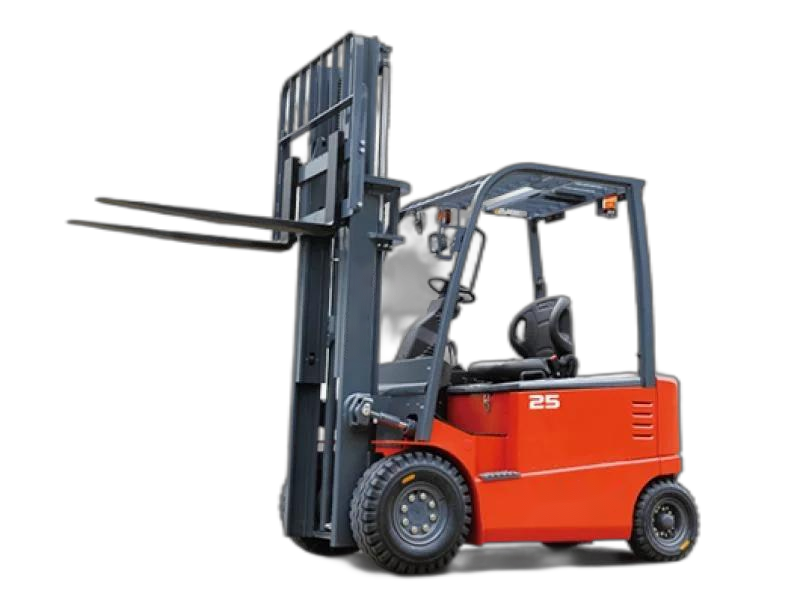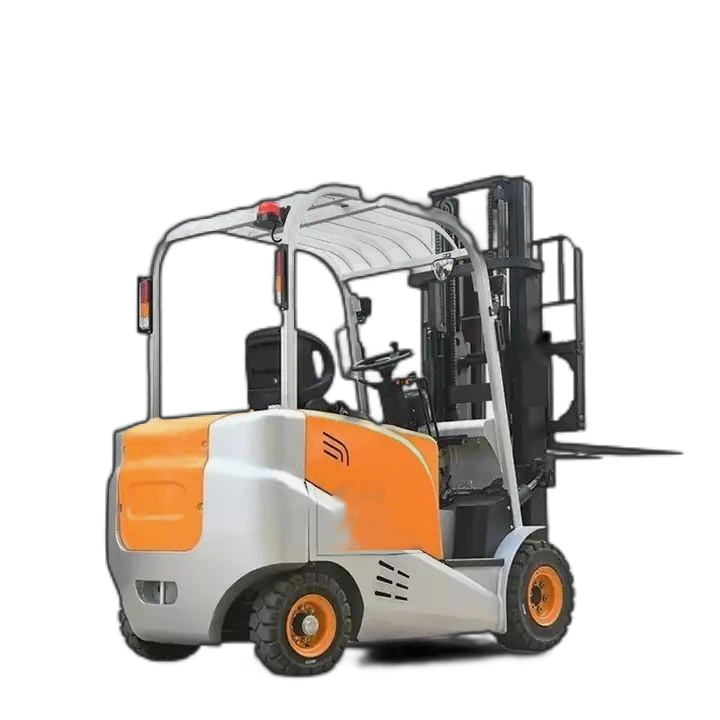The choice of a 7-ton excavator is mainly based on its comprehensive advantages in terms of performance, cost, applicability, and other aspects, and it is especially suitable for small and medium-sized projects and complex working environments. The specific reasons are as follows:
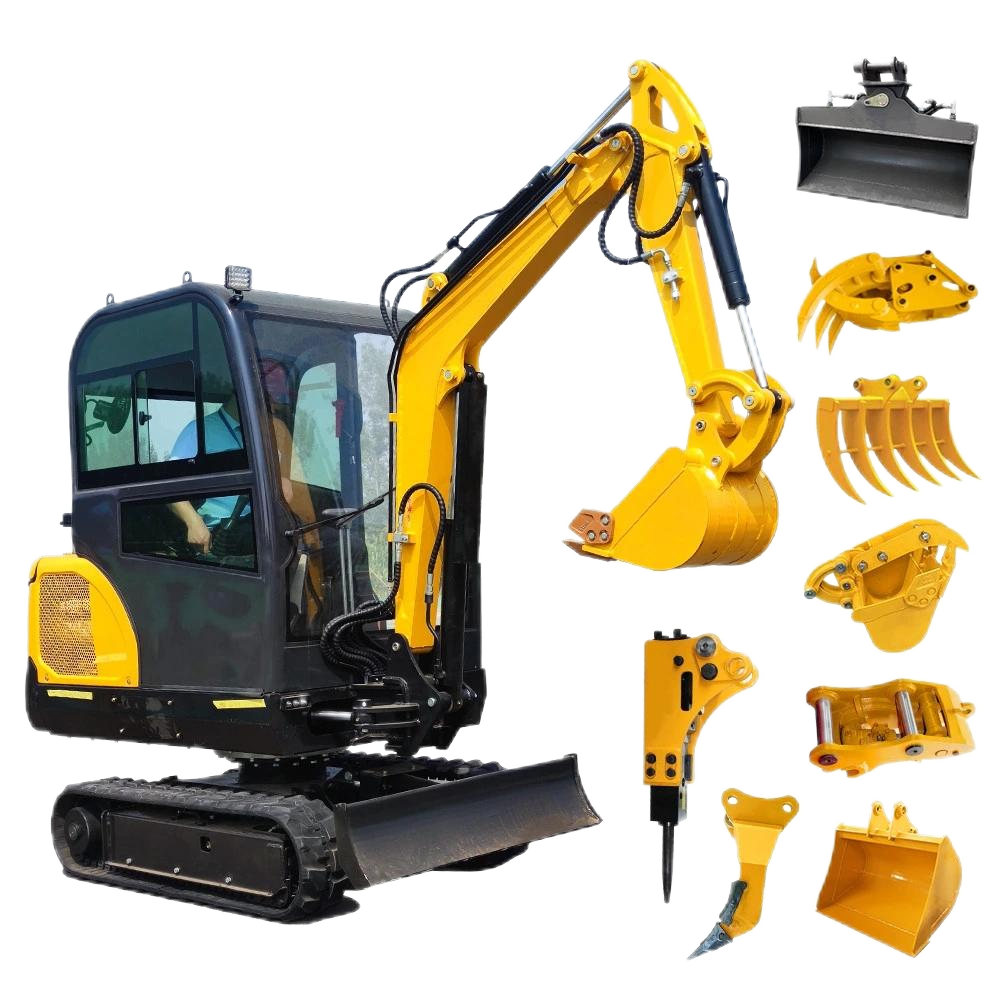
I. Highly efficient adaptation to complex working environments
- Working ability in narrow spaces
The 7-ton excavator has a small turning radius (usually ≤ 2.5 meters), and it can turn around and operate flexibly in narrow areas such as urban streets, basements, and residential areas. This avoids the problem that large equipment cannot operate due to space limitations. It is particularly suitable for fine projects such as urban pipeline laying, old house demolition, and indoor renovation. - Quick site transfer and mobility
The moving speed of the wheeled 7-ton excavator can reach 20-30 kilometers per hour. It does not need to be transported by a trailer and can quickly travel back and forth between multiple construction sites. Although the crawler-type model moves more slowly, it has a moderate weight (about 7 tons), causes little damage to the road surface, and does not require additional road administration approval during site transfer, saving time costs.
II. Versatility to meet diverse needs
It can be adapted to a variety of attachments (such as breaker hammers, grapples, vibratory rammers, rotating screening buckets, etc.), and one machine can complete multiple types of operations such as excavation, crushing, loading, grabbing, and leveling:
It can be adapted to a variety of attachments (such as breaker hammers, grapples, vibratory rammers, rotating screening buckets, etc.), and one machine can complete multiple types of operations such as excavation, crushing, loading, grabbing, and leveling:
- In construction scenarios: crushing concrete roads, clearing construction waste, loading and unloading bricks and stones;
- In agricultural scenarios: excavating irrigation canals, trimming terraces, transporting straw or forest trees;
- In municipal engineering: laying cable pipelines, digging holes for greening and tree planting, dredging rivers.
There is no need to replace the equipment frequently, which improves work efficiency.
III. Significant cost-benefit advantages
- Fuel economy and low maintenance costs
It is equipped with a small to medium-power engine of 40-50 kilowatts (such as Isuzu, Kubota). The fuel consumption is more than 50% lower than that of large excavators weighing more than 20 tons, and the average daily fuel cost is about 200-300 yuan. The structure is simple, and the prices of maintenance parts such as filters and hydraulic oil are low. Moreover, the maintenance points are easy to access, and the maintenance time is short (routine maintenance takes about 1-2 hours each time), reducing downtime losses. - High cost performance and quick return on investment
The price of a new machine is about 300,000 to 500,000 yuan, which is much lower than that of large excavators (800,000 to 2 million yuan). And there is a strong demand in the rental market (the daily rent is 800-1500 yuan), which is suitable for small and medium-sized construction enterprises or individual owners to recover the cost quickly.
IV. User-friendly operation and safety
- Precise control and low operation threshold
The hydraulic system is highly responsive, and the operation handle is light. Novices can get started after a short training period. Some models are equipped with intelligent monitoring screens (such as the 7-inch large screen of Sany SY70C), which can display data such as fuel consumption and hydraulic pressure in real time to assist in precise operation. - Stability and safety
The center of gravity is reasonably designed. The crawler-type model has a small ground contact pressure ratio (about 0.3-0.4MPa), which is suitable for working on soft ground (such as farmland, wetlands) and is not easy to get stuck. The tail is short (the turning radius of the tail of some models is < 1.2 meters), reducing the risk of collision with surrounding personnel or facilities during operation.
V. Wide range of applicable scenarios
It almost covers the mainstream needs of small and medium-sized projects:
It almost covers the mainstream needs of small and medium-sized projects:
- Urban infrastructure construction: road repair, excavation of rain-sewage diversion pipelines, renovation of old residential areas;
- Agricultural water conservancy: excavation of fish ponds, renovation of machine-cultivated roads, construction of water storage tanks;
- Landscaping: transplanting large trees (with the cooperation of a grab bucket), shaping landscape terrains;
- Small mines: stripping of clay mines, loading of sand and gravel (equipped with a bucket of 0.3-0.5 cubic meters).
There is no need to purchase special equipment for a single project, and it has strong versatility.
Conclusion
The 7-ton excavator is an "all-round medium-strength" equipment, achieving a balance in flexibility, cost, and functional adaptability. It is especially suitable for users with limited budgets, variable working scenarios, and those who pursue high-efficiency return on investment. Whether it is urban fine construction or small and medium-sized projects in rural areas, gardens, etc., it can achieve "great uses" with its "small size" and is a highly cost-effective choice.
The 7-ton excavator is an "all-round medium-strength" equipment, achieving a balance in flexibility, cost, and functional adaptability. It is especially suitable for users with limited budgets, variable working scenarios, and those who pursue high-efficiency return on investment. Whether it is urban fine construction or small and medium-sized projects in rural areas, gardens, etc., it can achieve "great uses" with its "small size" and is a highly cost-effective choice.





